AI is artificial. ?
Fraud analyst are real. ?
And that is why AI will never eliminate the fraud analyst. In fact, it will only drive more demand for fraud analyst.
If you’re a solution company selling the pipe dream that your super AI is the only way to spot the deep fakes and frauds, you don’t understand fraud.

If you think fraud analyst are done, kaput and irrelevant, I can’t tell you how wrong you are.
In fact, with the rise of AI we need more fraud analyst. Tens of thousands more.
And here are six reasons why.
#1 – Fraud Analyst Are The Keepers of Authenticity
In a deepfake world where you can trust nothing, fraud analysts will become the guardians of authenticity, guiding us to what we can trust and what we cannot.
They will certainly be guided and assisted by artificial intelligence tools, but ultimately the fraud analyst will make the decisions on what to do when something is not authentic.
Recent research suggests that the human brain is remarkably good at finding the fingerprints of deepfakes. The human brain in some regard is wired with an innate “spidey sense” when something is off, even if it cannot be expressed in words it triggers a reaction.
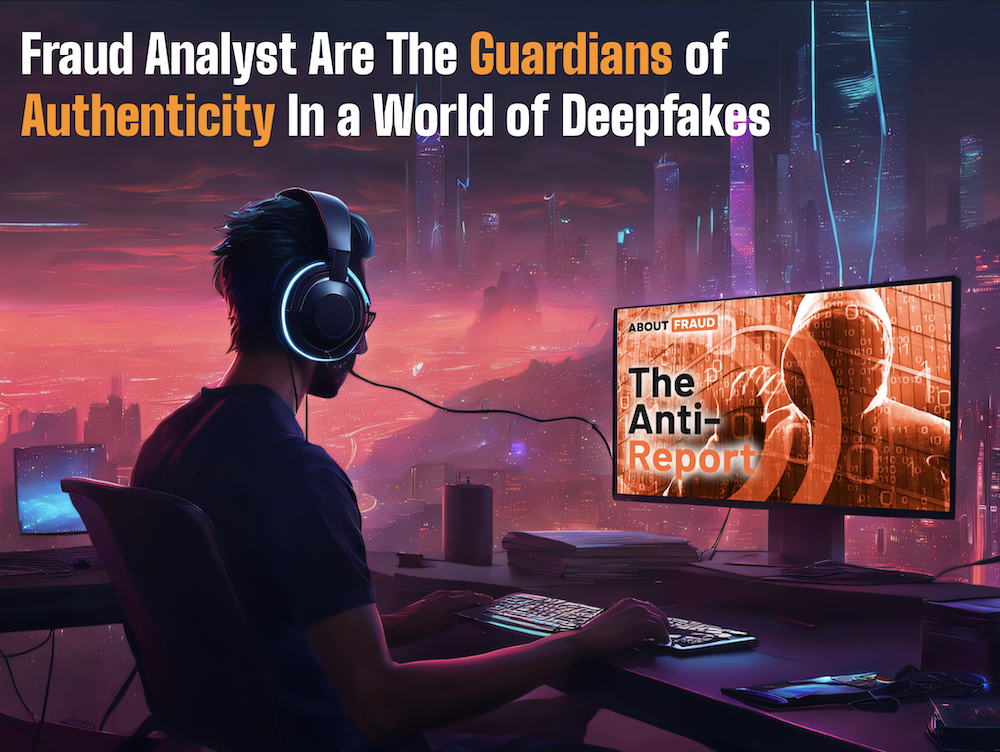
#2 – AI Hallucinates And Has Always Has Some False Positives
The weatherman never gets the weather prediction right every time and AI models never predict fraud correctly every time either.
AI always have false positives because they make predictions based on probabilities. The probability is never 100% and never 0% since models can never offer certainty. That is why fraud scores are never 0 and never 1000.
As long as there are false positives in AI, there will always be a need for fraud analyst to review the output, call customers and make judgment calls.
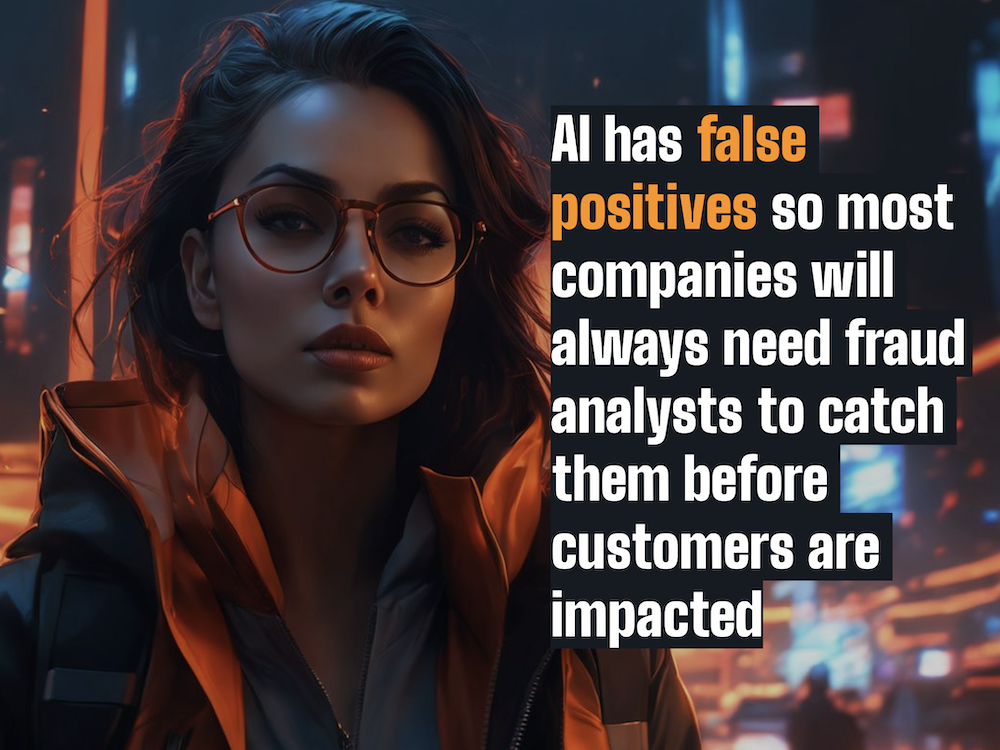
#3 – Because Fraud Analyst Can Think And AI Cannot
AI is remarkably effective at using historic information to learn from the past. ChatGPT for example was built on Common Crawl data containing over 240 billion web pages over the last 16 years and it has learned to communicate like a human.
But models like ChatGPT cannot think. They cannot reason. And they cannot adapt to something that they know nothing about.
And that is another reason why fraud analyst are more relevant than ever. Fraud Analyst have the ability to think. Fraud trends move quickly and it requires creativity to identify it and solve for it.
Fraud Analyst adapt, but AI cannot.
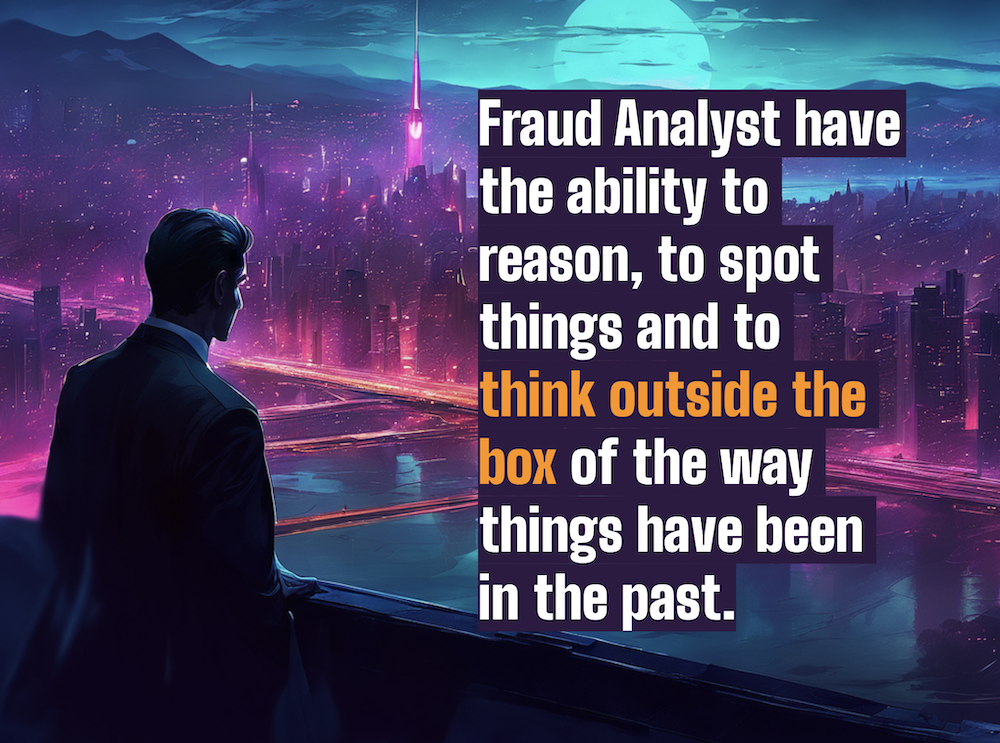
#4 – Because Who Created The Data For The Artificial Intelligence Anyway?
AI requires data to learn. And AI built for fraud requires examples of fraud that it can be trained on. In some cases millions of examples for it to be effective.
Those examples are called “fraud tags” and every single one of them was identified by a human fraud analyst.
That means the AI that is developed is only as good as the fraud analyst that marked those frauds. If those AI models are amazing, that’s because amazing fraud analyst created those markers to begin with.
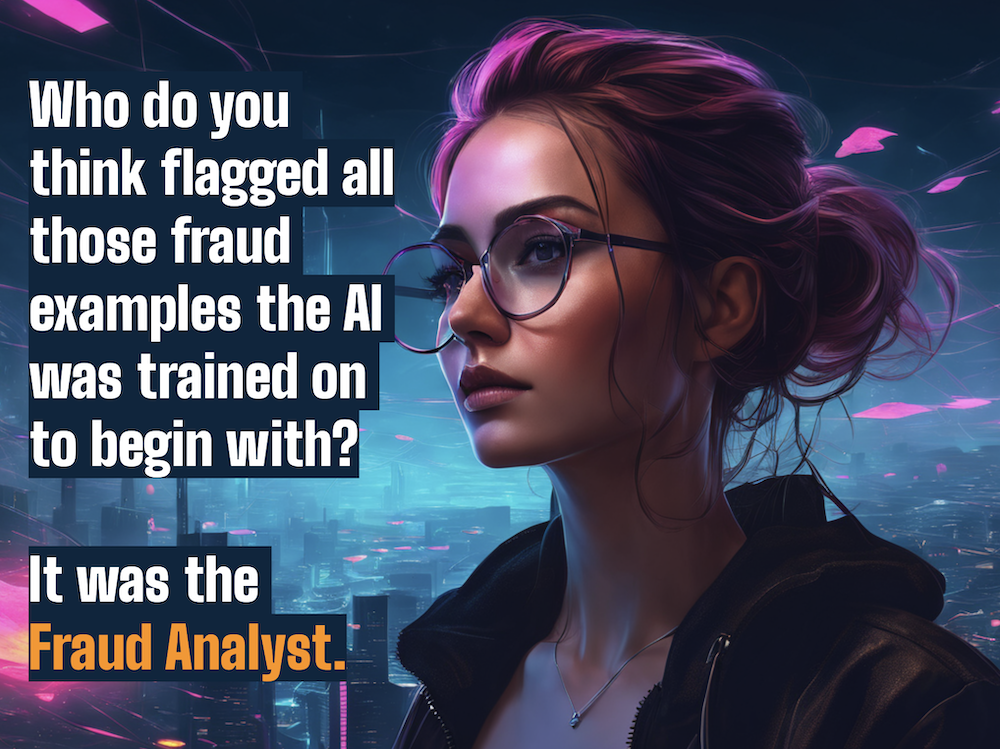
#5 – Because FCRA – You Can’t Decline Automatically
FCRA prohibits the use of many data elements for granting credit. Some of these elements like a zip code cannot be used but they actually offer quite a bit of insight into fraud.
Since fraudsters tend to work in networks that are located geographically those views become very important to AI models.
Without human fraud analysts to review transactions or loans for fraud manually, those AI models cannot be used because they might unfairly punish people just because of where they live. The fraud analyst reviewing these flagged transactions for fraud enables them to eliminate the false positives and stay compliant and stop the risk.
# 6 – Because The CEO Doesn’t Want To Hear From an AI Robot
Imagine your AI fraud robot declines the credit card payment of the CEO’s friend while they are vacation in Hawaii trying to get dinner.
They call the CEO and she is mortified that her high profile friend has been declined.
Do you think the CEO wants to ask the AI Robot what happened? Or do you think she would rather hear it from a human person that really knows what happened and what can be done differently next time?
That’s right. No CEO wants to talk to a robot. Another reason why the analyst is here to stay.
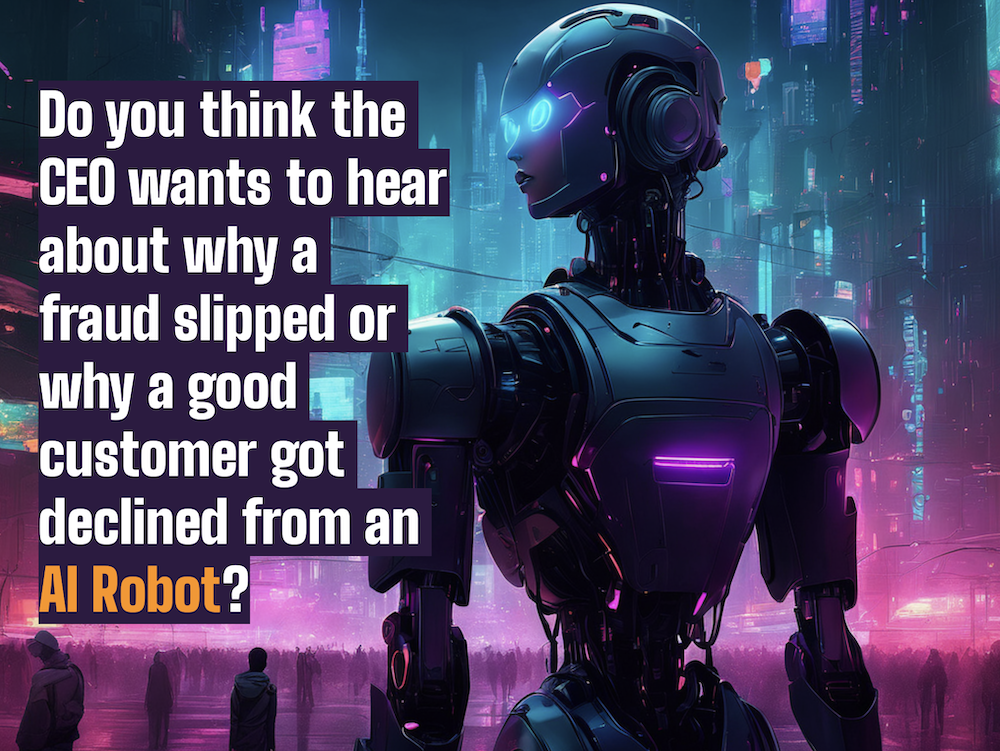
What Do You Think?
As a former fraud analyst, I can attest to our flaws. We often think that if we could just get our eyes on each and every transaction or each and every loan that we could figure out if it was fraud or not.
But that is just not possible. And it cannot scale. A business cannot grow by hiring armies of fraud analyst to scrutinize every transaction or loan
I have seen the power of AI and how it can transform a business. I have seen business save millions of dollars a day with AI solutions.
But I have also seen those AI fail when they do not have the right people and processes behind them. The best model is useless if it is not used by the fraud analyst in the right way.
You can’t have AI without the fraud analyst, and I don’t think you should have the fraud analysts without some assistance from AI. They are both equally important.



